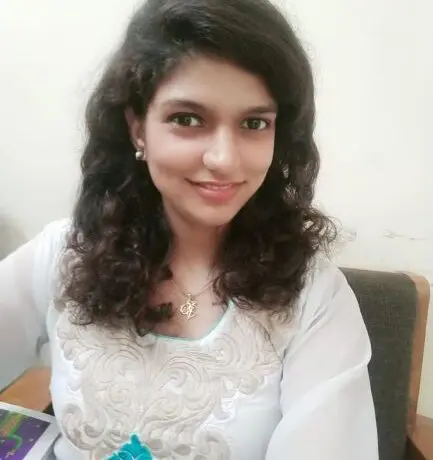
The areas of her clinical focus include children, adolescents, and adults with mood disorders (i.e., depression, bipolar disorder), Relationship issues, anxiety, anger management, trauma, addictions, and personality disorders.
1. What inspired you to pursue Psychology?
Since my earlier days, Psychology as a field enthused me. I was into blog reading and used to read case studies or specific stories about mental health. Gradually, my interest converted into a passion. This led me to understand my own behavior and helped me to find better insights about myself, which in turn helped me to understand the behavior of others in a better way. To further pursue this interest, I chose Psychology as my field.
2. What do you consider to be the most important traits for a clinical psychologist to have?
According to me, the most important traits for a clinical psychologist are:
- Empathy
- Listening skills
- Problem-solving attitude
- Assertive skills
- Communication skills
- Ability to connect with the patient and reciprocate their feelings and thoughts
- Research acumen and adaptability for new therapies
3. What areas of clinical work do you enjoy most?
- Diagnosis of mental health issues especially personality disorders, an addiction problem, separation issues with marital conflict, family therapy, and anxiety-related issues, suicidal behavior, trauma therapy, and theirs prevention areas (Treatment and Management Part)
- Further, I am age agnostic and prefer to work with a diverse group of people
4. What is your greatest strength as a clinical psychologist?
Ability to identify the problem area and suggestion of management plan for the same
5. How do you handle stress?
I handle my stress with the below activities
- Time management (to-do list)
- Yoga and meditation on a daily basis
- Problem-solving attitude
- Being humorous and jolly
- Spend quality time with family
6. What do you do outside of work that helps you maintain a healthy, well-balanced life?
-Daily work out
-Spend quality time with friends and family
-Maintain a healthy diet
-Reading therapy-related work
-Meditation and spiritual time spending
7. A patient is emotionally distressed after suffering a traumatic experience. How do you respond?
In such a case, the therapist needs to listen to patients and show empathy towards the patient’s condition. This would help the patient to ventilate thoughts. Once, the patient ventilates, it would calm down the patient and would give insight to the therapist for the patient’s problem area. Then, the therapist would create a therapeutic alignment. Astley, identification of appropriate therapy is done, which can be any of these – Cognitive Behavior Therapy (CBT), exposure-based intervention, the narrative approach, and supportive session for counseling, maybe any of mindfulness-based interventions, etc. which may be helpful for clients to get over form traumatic episodes.
8. What would you consider to be the leading causes of mental health issues today?
While traumatic life incidents and family history contribute the majority of the cases, (Anxiety spec toms, stress, depression, etc), recent changes in lifestyle patterns including working for late office hours, improper diet, lack of proper sleeping cycle, high consumption of intoxicating substances or drugs, family dynamic and lack of a strong family bond or inadequate parenting are some of them.



Thank you for giving me best life..
Now I’m able to understand my problems.
I’ll be fine gradually…